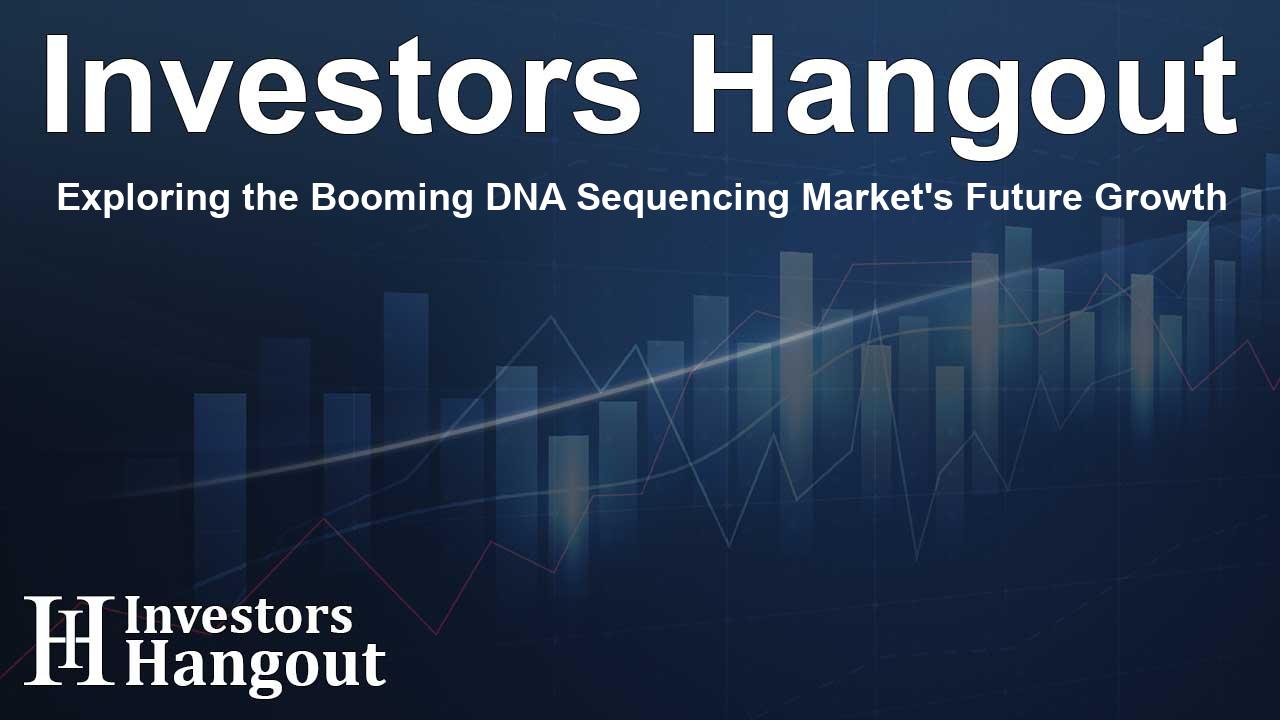Exploring the Booming DNA Sequencing Market's Future Growth

Understanding DNA Sequencing and Its Importance
DNA sequencing is a revolutionary technique that deciphers the exact order of nucleotides in a DNA molecule. This process is critical for unlocking the genetic blueprint of organisms, shedding light on biological functions, evolutionary dynamics, and the genetic underpinnings of various diseases. Advances in modern DNA sequencing technologies have paved the way for swifter and more precise sequencing capabilities, significantly enhancing fields such as genomics, personalized medicine, and biotechnology.
Market Dynamics Driving Growth
Surge in Demand for Personalized Medicine
The personalized medicine landscape is rapidly evolving, as it tailors healthcare to meet individual patient needs based on their unique genetic profiles. DNA sequencing is indispensable here, providing deep insights into a patient's genetic makeup that guide healthcare providers in formulating accurate diagnoses and bespoke treatment plans. This targeted approach reduces the likelihood of adverse reactions and optimizes therapeutic outcomes. Cancer treatment, for instance, has greatly benefited from DNA sequencing; oncologists are now able to understand specific genetic mutations in tumor DNA. The resulting personalized therapies can directly target these mutations, underscoring the pivotal role of DNA sequencing in contemporary healthcare.
Innovative Applications in Agriculture and Food Safety
The scope of DNA sequencing extends beyond healthcare into the realms of agriculture and food safety. This technology is instrumental in enhancing crop yields, boosting pest resistance, and engineering crops with beneficial traits like drought resistance and improved nutritional profiles. By sequencing plant genomes, researchers can pinpoint genetic factors responsible for these advantageous traits, which enables more targeted approaches to genetic modifications and selective breeding.
In food safety, DNA sequencing is proving to be a game changer. It facilitates the identification and tracking of foodborne pathogens at a molecular level, thus enhancing food traceability and safety standards. By employing techniques such as next-generation sequencing (NGS), the industry can quickly identify bacterial strains in food products, effectively preventing large-scale public health risks.
Regional Trends and Market Overview
North America is leading the charge in the global DNA sequencing market, buoyed by rapid technological advancements and robust government investments in genomics research. The U.S. stands at the forefront, thanks to the presence of major players like Illumina and Thermo Fisher Scientific, whose innovations are shaping the future of the industry. Initiatives like the NIH's All of Us program are further catalyzing growth, promoting large-scale genomic studies that aim to advance precision medicine.
Key Highlights from the Market Analysis
- The global DNA sequencing market was valued at approximately USD 14.88 billion, with projections showing it will grow to USD 74.89 billion by 2033 at a remarkable CAGR of 21.65%.
- The market is categorized based on offerings into consumables, instruments, and services, with consumables holding the largest market share.
- Technologically, the market is segmented into Sanger sequencing, next-generation sequencing, and the emerging field of third-generation sequencing, with the latter contributing significantly to revenues.
- Applications of DNA sequencing range widely, including oncology, clinical research, agrigenomics, and drug development, with oncology being the predominant revenue contributor.
- Key players in the competitive landscape include Thermo Fisher Scientific, Illumina, and QIAGEN, among others.
Recent Innovations and Future Potential
A notable recent advancement in DNA sequencing technology is the introduction of the PromethION 2 platform by Oxford Nanopore Technologies. This high-throughput sequencing device enhances throughput and scalability, enabling researchers to undertake large-scale genomic studies with greater efficiency. Such innovations are expected to bolster capabilities in personalized medicine and pathogen surveillance, highlighting the continuous evolution of the DNA sequencing market.
Frequently Asked Questions
What is DNA sequencing?
DNA sequencing is a method used to determine the precise order of nucleotides in a DNA molecule, which is essential for understanding genetics and biological functions.
How is DNA sequencing used in personalized medicine?
It provides detailed genetic information that helps healthcare providers deliver tailored treatments based on individual patients' genetic profiles, improving efficacy and reducing side effects.
Which regions are leading in the DNA sequencing market?
North America, particularly the United States, is currently the dominant region due to advancements in technology and significant investment in genomics research.
What are some applications of DNA sequencing in agriculture?
DNA sequencing can enhance crop traits, improve yields, and aid in food safety by tracking contaminants and pathogens effectively.
Who are the major players in the DNA sequencing market?
Key companies include Illumina, Thermo Fisher Scientific, QIAGEN, and Oxford Nanopore Technologies, among others, driving innovation and market growth.
About The Author
Contact Thomas Cooper privately here. Or send an email with ATTN: Thomas Cooper as the subject to contact@investorshangout.com.
About Investors Hangout
Investors Hangout is a leading online stock forum for financial discussion and learning, offering a wide range of free tools and resources. It draws in traders of all levels, who exchange market knowledge, investigate trading tactics, and keep an eye on industry developments in real time. Featuring financial articles, stock message boards, quotes, charts, company profiles, and live news updates. Through cooperative learning and a wealth of informational resources, it helps users from novices creating their first portfolios to experts honing their techniques. Join Investors Hangout today: https://investorshangout.com/
The content of this article is based on factual, publicly available information and does not represent legal, financial, or investment advice. Investors Hangout does not offer financial advice, and the author is not a licensed financial advisor. Consult a qualified advisor before making any financial or investment decisions based on this article. This article should not be considered advice to purchase, sell, or hold any securities or other investments. If any of the material provided here is inaccurate, please contact us for corrections.
